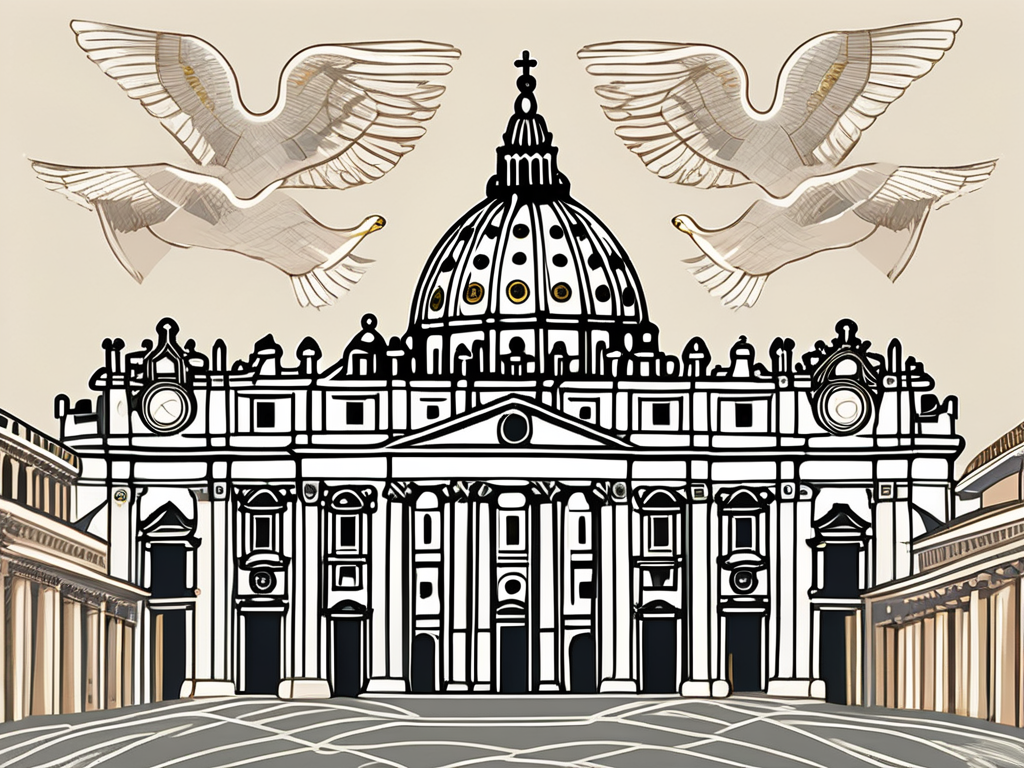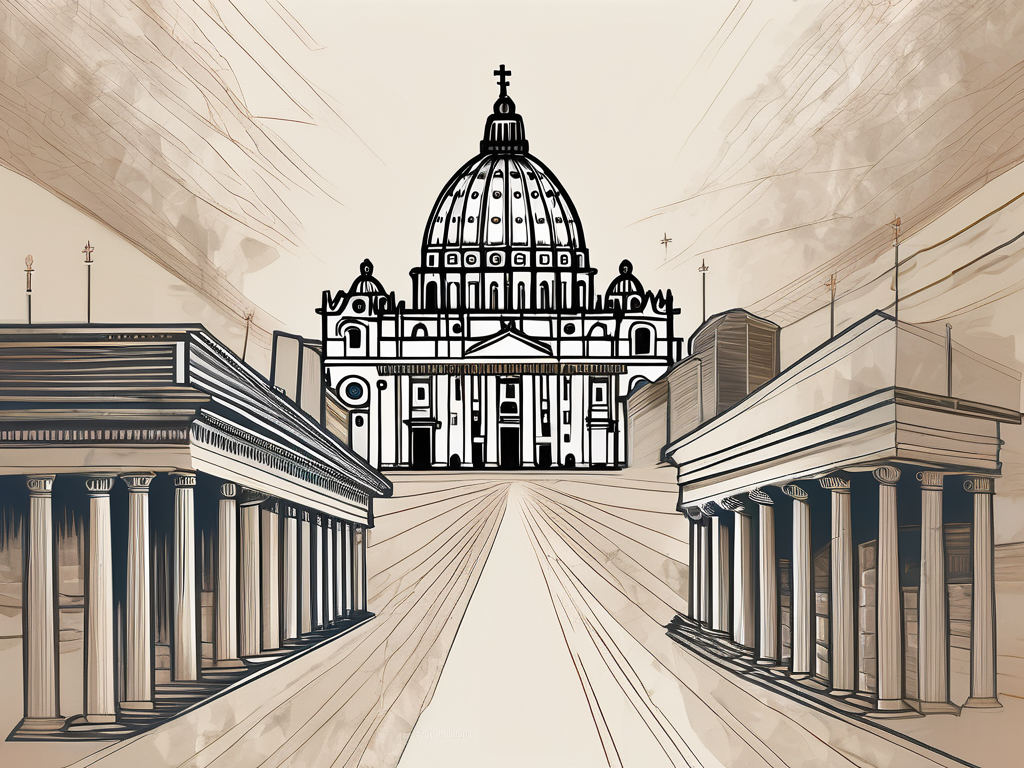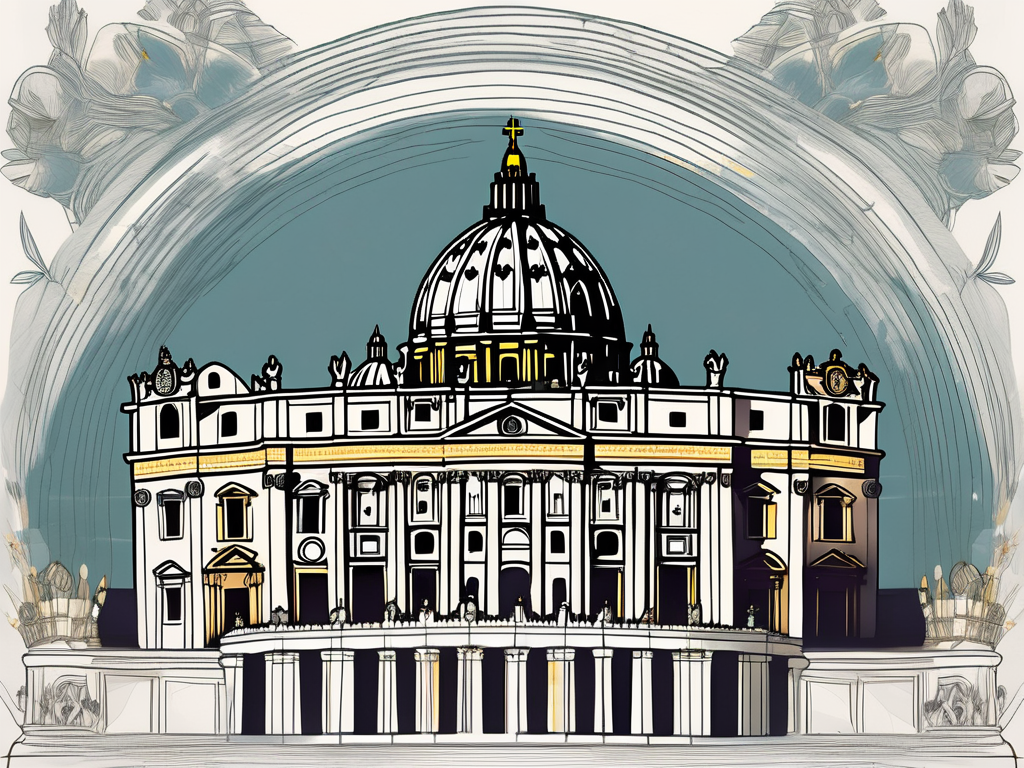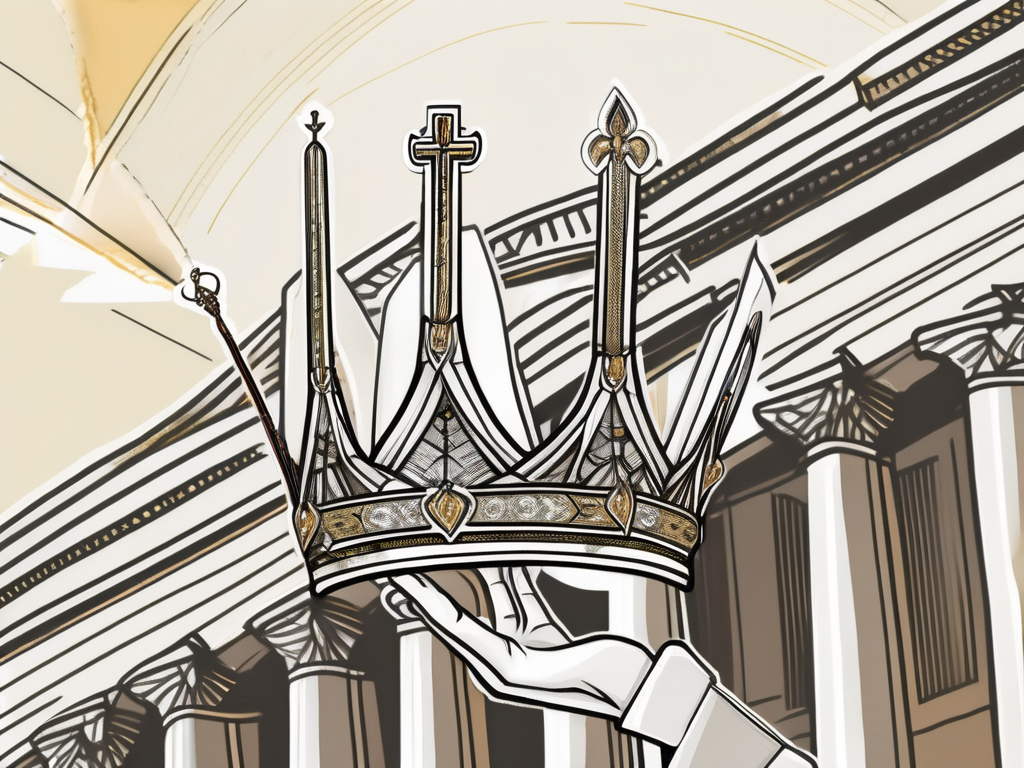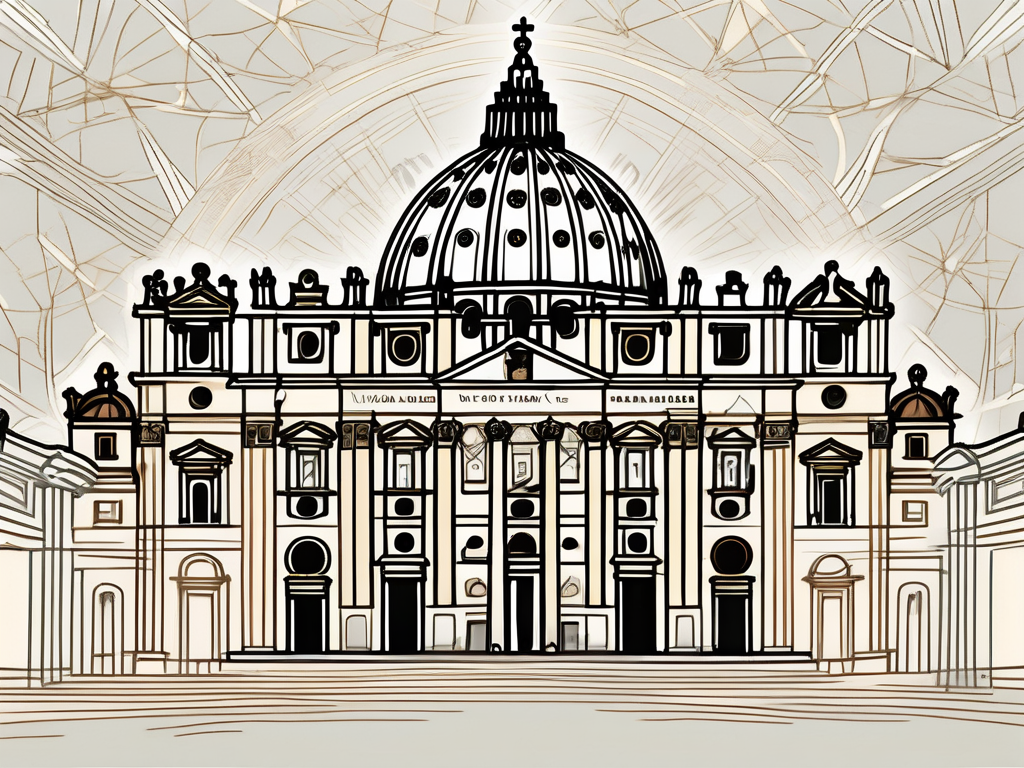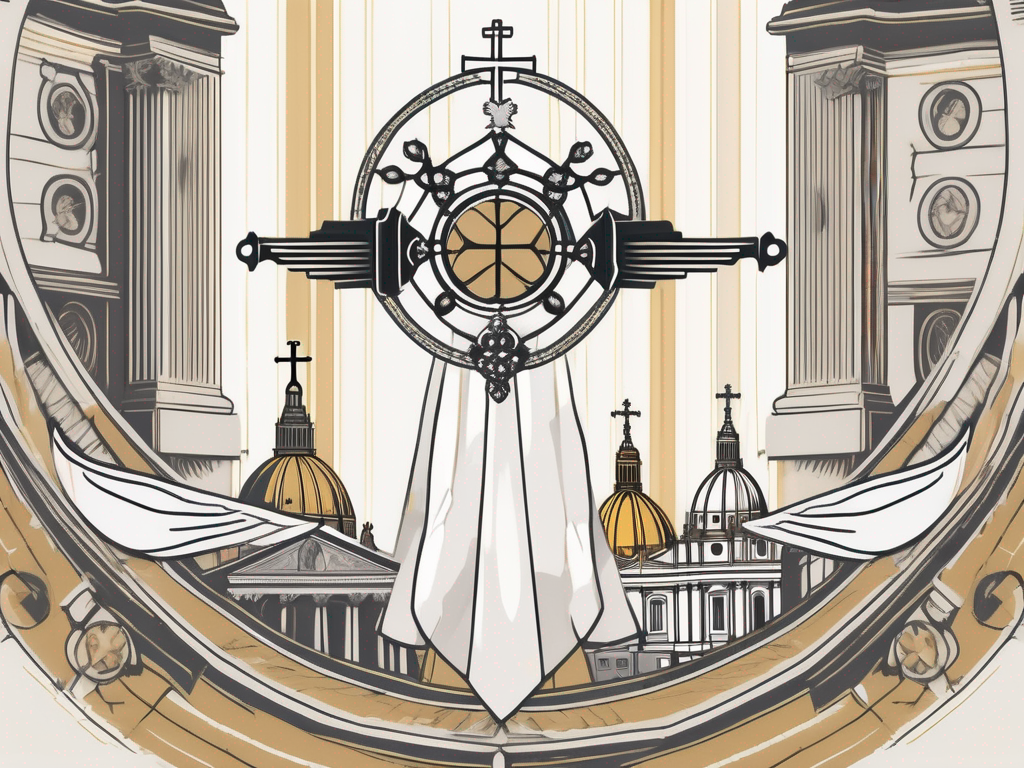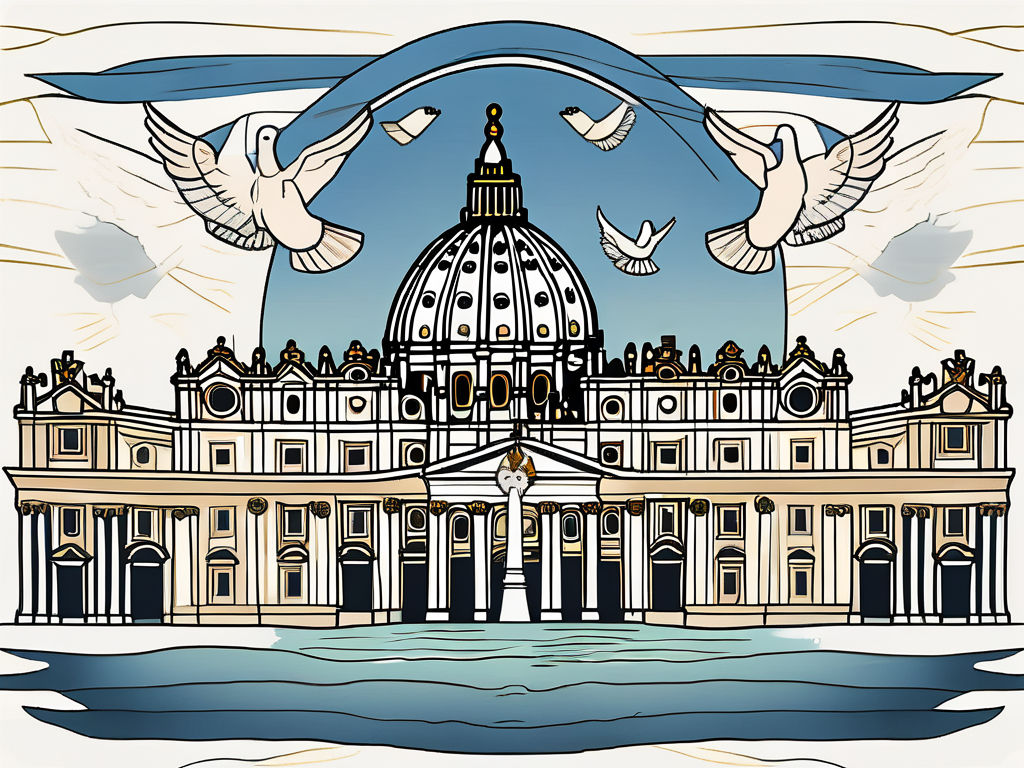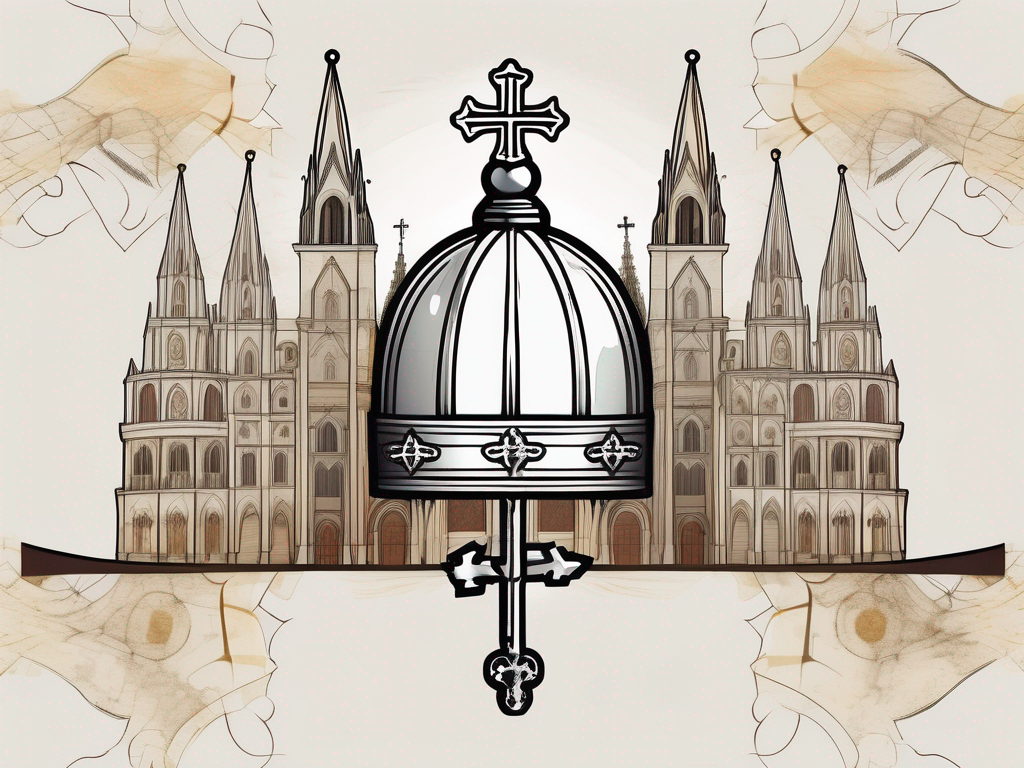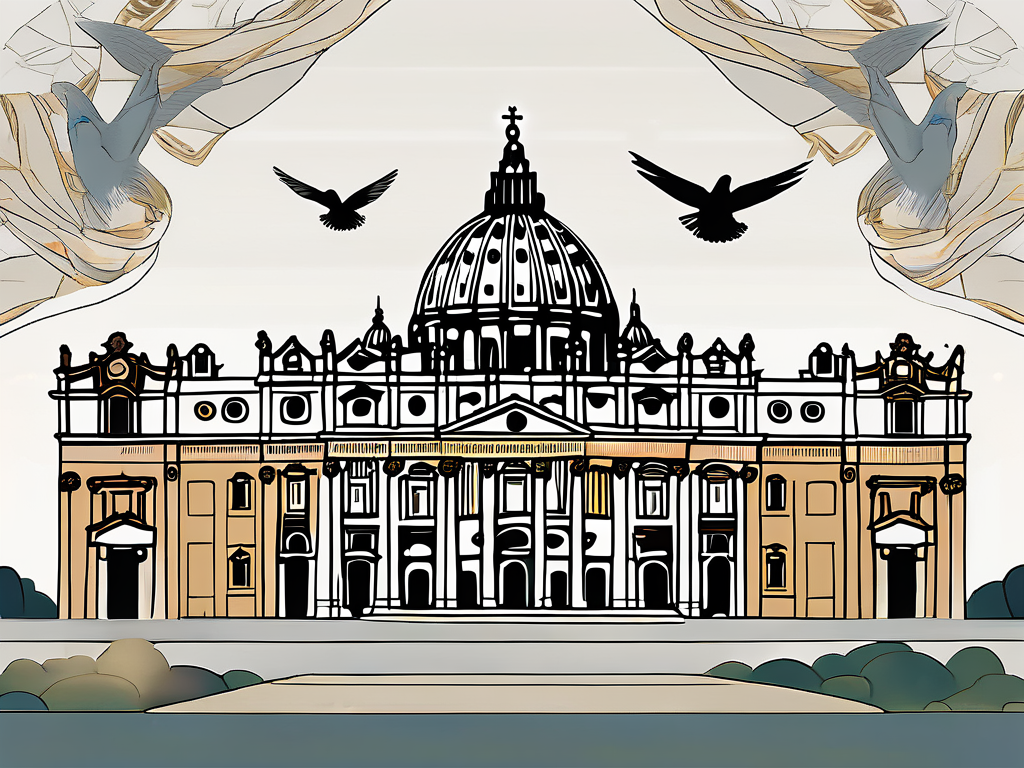Pope Pius X, born Giuseppe Melchiorre Sarto, had a remarkable journey from his humble origins to becoming one of the most influential popes in history. His life was marked by significant contributions, both within the Church and in the realm of world politics. Let’s delve into the fascinating details of his early life, ascension to the papacy, major reforms, involvement in global affairs, and his enduring legacy.
Early Life and Education of Giuseppe Melchiorre Sarto
Giuseppe Melchiorre Sarto was born on June 2, 1835, in Riese, a small town in the Venetian region of Italy. He came from a humble background, raised in a family deeply devoted to their Catholic faith.
As a child, Giuseppe experienced the trials and tribulations of poverty, which shaped his understanding of the struggles faced by the working class. He witnessed firsthand the hardships his family and neighbors endured, and this ignited a fire within him to make a difference in the lives of those less fortunate.
Despite the challenges of poverty, Giuseppe’s family provided him with a strong foundation of love, faith, and hard work. They instilled in him the importance of education and the power of knowledge to uplift oneself and others. This early upbringing would serve as a guiding light throughout his life.
Giuseppe’s thirst for knowledge and his deep devotion to his Catholic faith led him to pursue a religious education. At the age of fifteen, he entered the seminary, where he would spend the next years of his life immersed in theological studies and spiritual formation.
Birth and Family Background
Giuseppe was the second of ten children. His parents, Giovanni Battista Sarto and Margherita Sanson, were hardworking individuals who made ends meet through farming and other manual labor. Despite their meager means, they prioritized the education and well-being of their children, instilling in them a sense of resilience and determination.
The Sarto family’s Catholic faith was the cornerstone of their lives. They attended Mass regularly, participated in the sacraments, and engaged in acts of charity within their community. Giuseppe’s parents, in particular, were known for their generosity and compassion, often opening their doors to those in need.
Pursuit of Religious Education
Driven by a deep sense of vocation, Giuseppe entered the seminary at the age of fifteen. His dedication and intellectual prowess quickly became apparent, earning him the respect and admiration of his peers and mentors. He delved into the study of theology, philosophy, and scripture, immersing himself in the rich traditions of the Catholic Church.
Throughout his years in the seminary, Giuseppe’s passion for serving others grew stronger. He witnessed the suffering and injustices faced by the poor and marginalized, and this fueled his desire to become a priest who would advocate for their rights and alleviate their suffering.
After years of rigorous study and spiritual formation, Giuseppe was ordained as a priest in 1858. His ordination marked the beginning of a remarkable journey that would lead him to become one of the most influential figures in the Catholic Church.
Ascension to Papacy as Pope Pius X
After fulfilling various priestly duties and holding key positions within the Church, Giuseppe’s steadfast commitment to the faith earned him the papal tiara. In August 1903, he assumed the mantle of the papacy as Pope Pius X.
As Pope Pius X, Giuseppe embarked on a journey that would leave an indelible mark on the history of the Catholic Church. His humble beginnings and unwavering dedication to the teachings of Christ propelled him to become one of the most influential popes of the twentieth century.
Known for his deep spirituality and genuine concern for the faithful, Pope Pius X sought to bring the Church closer to the people. He firmly believed that the Church should be a guiding light in the lives of the faithful, providing them with the spiritual nourishment they needed to navigate the challenges of the modern world.
Election and Papal Coronation
With the support of his fellow cardinals, Giuseppe was elected Pope Pius X. His papal coronation took place on August 9, 1903, in a grand ceremony that symbolized the weight of his new responsibilities. As he donned the papal tiara, the weight of centuries of tradition and the hopes of millions of Catholics around the world rested on his shoulders.
During his coronation, Pope Pius X expressed his gratitude to God for the opportunity to serve as the Vicar of Christ on Earth. He pledged to carry out his duties with unwavering devotion and to lead the Church with wisdom and compassion.
The coronation of Pope Pius X marked the beginning of a new era for the Catholic Church. It was a time of great anticipation and hope, as the faithful eagerly awaited the reforms and initiatives that the new pope would introduce.
Key Decisions and Policies in the Early Years
During the early years of his pontificate, Pope Pius X wasted no time in implementing crucial policies that would shape the future of the Church. His decisions were guided by a deep understanding of the needs of the faithful and a desire to strengthen their relationship with God.
One of the key initiatives introduced by Pope Pius X was the promotion of frequent reception of Holy Communion. He believed that the Eucharist was the source and summit of the Christian life and that regular participation in this sacrament was essential for the spiritual growth of the faithful. Through his efforts, he encouraged Catholics to approach the Eucharist with reverence and to receive it as often as possible.
Another area of focus for Pope Pius X was catechesis. He recognized the importance of providing the faithful with a solid foundation in the teachings of the Church. To achieve this, he emphasized the need for comprehensive catechetical programs that would educate Catholics of all ages about the tenets of their faith. Through these initiatives, he aimed to equip the faithful with the knowledge and understanding necessary to live out their faith in a meaningful way.
In addition to his emphasis on the Eucharist and catechesis, Pope Pius X also spearheaded liturgical reforms. He sought to restore the dignity and solemnity of the liturgy, ensuring that it remained a source of inspiration and spiritual nourishment for the faithful. His efforts in this area included the promotion of Gregorian chant and the revision of the Roman Missal.
Pope Pius X’s early years as pontiff were marked by a relentless pursuit of reforms that aimed to bring the Church closer to the people. His decisions and policies laid the foundation for a renewed sense of faith and devotion among the faithful, setting the stage for a transformative era in the history of the Catholic Church.
Major Contributions and Reforms
Pope Pius X’s legacy is defined by the significant contributions he made within the Church. His reforms aimed to restore the vitality of Catholicism and reconnect believers with their rich spiritual traditions.
During his papacy, Pope Pius X implemented various reforms that had a profound impact on the Catholic Church and its followers. These reforms not only sought to address the challenges faced by the Church at the time but also aimed to strengthen the faith of believers and deepen their connection with God.
Liturgical Reforms and Promotion of Gregorian Chant
Recognizing the need for a revitalized liturgy, Pope Pius X took significant steps to promote the use of Gregorian chant. This ancient form of sacred music, characterized by its melodic simplicity and profound spirituality, allowed the faithful to experience the beauty and transcendence of worship in a more profound way.
Under his guidance, efforts were made to reintroduce Gregorian chant into the liturgical celebrations of the Church. This not only enriched the spiritual experience of the faithful but also served as a reminder of the deep-rooted traditions and heritage of Catholicism.
Anti-Modernist Measures and Theological Stance
Pope Pius X was known for his staunch defense of the orthodoxy of Catholic doctrine in the face of modernist ideologies that sought to challenge traditional beliefs. He recognized the importance of preserving the integrity of Catholic teachings and ensuring that the faithful were not led astray by erroneous doctrines.
In 1907, Pope Pius X issued the encyclical “Pascendi Dominici Gregis,” which served as a strong condemnation of modernism and a reaffirmation of the Church’s teachings. This encyclical not only clarified the Church’s stance on various theological matters but also provided guidance to the faithful in navigating the challenges posed by modernist ideas.
Furthermore, Pope Pius X took various measures to combat the influence of modernism within the Church. He established the Pontifical Biblical Commission to safeguard the interpretation of Scripture and ensure its alignment with Catholic doctrine. Additionally, he encouraged the formation of seminaries that would provide solid theological education to future priests, equipping them with the necessary knowledge and tools to defend the faith.
Through his anti-modernist measures and unwavering theological stance, Pope Pius X played a crucial role in preserving the integrity of Catholic teachings and safeguarding the faith of believers.
Pope Pius X and World Politics
Pius X’s influence extended beyond the walls of the Vatican, as he actively engaged in the political landscape of his time.
Relations with European Powers
Throughout his papacy, Pope Pius X played a pivotal role in shaping diplomatic relations with European powers, fostering peace and stability among nations. His tireless efforts earned him respect and admiration on the international stage.
Stance on the Outbreak of World War I
During the tumultuous years leading up to World War I, Pius X demonstrated unwavering commitment to peace. He implored world leaders to seek diplomatic solutions and mourned the devastating loss of life caused by the conflict.
Death and Canonization
Final Years and Legacy
In his final years, Pope Pius X faced declining health but remained steadfast in his spiritual journey. His unyielding commitment to his faith, humility, and desire to uplift the lives of others left an indelible mark on those who encountered him.
Process and Impact of Canonization
Recognizing his profound contributions, Pope Pius X was canonized as a saint by Pope Pius XII in 1954. His canonization affirmed his enduring legacy and continues to inspire countless individuals to live out their faith with passion and humility.
In Conclusion
Pope Pius X’s life and legacy exemplify the transformative power of faith, humility, and dedication. From his humble beginnings to his influential papacy, he left an indelible mark on the Catholic Church and the world. Pope Pius X’s reforms, strong theological stance, and active engagement in global affairs remind us of the immeasurable impact one person can have when guided by a deep sense of purpose and a genuine desire to serve others.
